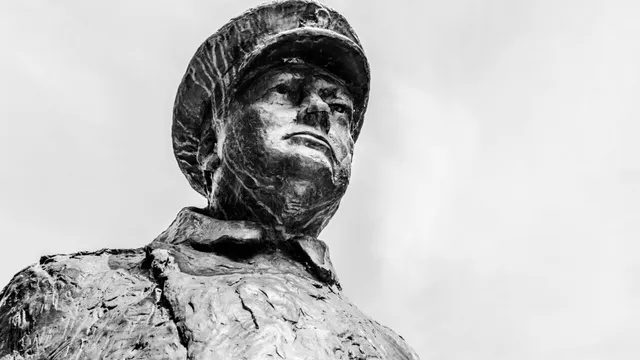
Winston Churchill rises to power during World War II
2025-05-08 21:14- Winston Churchill was appointed Prime Minister during a critical phase of World War II.
- His political comeback was shaped by years of prior warning about Nazi Germany.
- Churchill's leadership became symbolic of British resilience and served to unite the nation.
Express your sentiment!
Insights
In May 1940, Winston Churchill was appointed Prime Minister of the United Kingdom amid the escalating crisis of World War II. The war had already been ongoing for eight months when he arrived at 10 Downing Street. Prior to his resurgence, Churchill spent years as a backbencher in parliament and faced significant resistance from the British media regarding his warnings about Nazi Germany's rearmament. As European tensions mounted, British newspapers began advocating for Churchill's inclusion in the cabinet, recognizing his foresight about the dangers posed by Hitler. On September 3, 1939, the same day Britain declared war on Germany, Churchill was reappointed as First Lord of the Admiralty, a position he had held earlier in World War I. A critical point came with the so-called Norway debate in May 1940, which examined Britain's military strategy. The internal conflict within the British government led to Neville Chamberlain's resignation. Chamberlain advised King George VI to appoint Churchill as the new Prime Minister, a moment of decisive leadership during one of history's darkest periods. In his first speech to the House of Commons, Churchill conveyed the gravity of the situation, offering a candid account of the struggle ahead. His resolve and determination became symbols of British defiance against Nazi Germany as he famously declared, “I have nothing to offer but blood, toil, tears, and sweat.” This marked the beginning of a pivotal chapter in both Churchill's career and the Second World War, galvanizing the British people toward a united front against oppression.
Contexts
Winston Churchill played a pivotal role during World War II, serving as the Prime Minister of the United Kingdom from 1940 to 1945. His leadership was characterized by his unwavering resolve and determination to combat Nazi Germany. Churchill's rise to power came at a critical time when Britain faced the imminent threat of invasion, and his speeches and radio broadcasts rallied the nation, instilling hope and courage in the British people. He famously declared that he would fight on the beaches, in the fields, and in the streets, emphasizing a fight to the end, which became a rallying cry for resilience. His mastery of rhetoric was instrumental in uniting the Allies and has since become a hallmark of his political legacy, enhancing Britain's moral standing on the global stage during one of its darkest times. Strategically, Churchill was adamant about forming strong alliances to counter the Axis powers. He was a key figure in fostering the Anglo-American relationship, characterized by profound cooperation with U.S. President Franklin D. Roosevelt. Their partnership was fundamental in organizing military strategy and securing essential resources to sustain the war effort. Churchill advocated for increased military collaboration and was crucial in persuading Roosevelt to support Britain through measures like the Lend-Lease Act, which provided significant military aid. Furthermore, Churchill’s collaboration with the Soviet Union, despite ideological differences, was a crucial pivot in the war effort, establishing a united front against the totalitarian regimes of Nazi Germany and Imperial Japan. One of Churchill's significant contributions was his involvement in major wartime conferences, which shaped the strategic direction of the Allies, including the Casablanca Conference and the Tehran Conference. His vision for post-war Europe was also critical; he understood the necessity of planning for a peaceful and stable Europe after the conflict, leading to discussions on the establishment of organizations that would later become important in international relations. His foresight in recognizing the impending Cold War dynamics and his insistence on the importance of maintaining robust military preparedness and alliances indicated his understanding of not only the war at hand but also the geopolitical challenges that would follow. In conclusion, Winston Churchill's significance during World War II is encapsulated in his strategic leadership, powerful oratory, and diplomatic skills. His determination and innovative approaches set the tone for Britain's war strategy and its eventual victory. By forging vital alliances and fostering national unity, Churchill not only aided in the Allied triumph but also left an indelible mark on the course of history. His legacy is one of resilience, foresight, and patriotism, reminding future generations of the profound impact one leader can have in times of crisis.